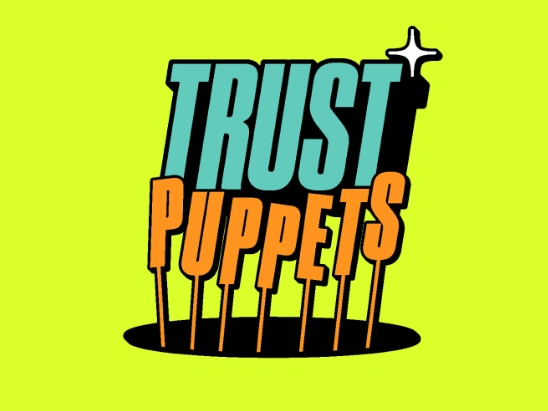Who's really making that mouth move...
What's the Tactic?
Sports betting agencies strategically employ well-known celebrities, athletes, and social media personalities to promote their brands. This tactic aims to leverage the public's admiration and trust in these figures to win your confidence, normalise gambling, and ultimately, encourage you to bet more frequently and with higher stakes. The irony is often jarring: a famous personality encourages you to gamble, then perhaps adds a fleeting "bet responsibly" tagline. This superficial nod to responsibility stands in stark contrast to the core message of engaging with a product designed for profit from your losses. A particularly impactful example in New Zealand is seeing beloved ex-All Blacks promoting gambling brands, sometimes even directly within the broadcast of a rugby game.
Why Does It Work?
Celebrity endorsement is a highly effective psychological tactic that taps into our inherent tendencies to trust and emulate admired figures:
- Halo Effect & Credibility Transfer: When a well-known athlete or personality promotes a gambling brand, it triggers the halo effect. The positive attributes associated with the celebrity (e.g., trustworthiness, success, athleticism) are unconsciously transferred to the betting platform. This creates the impression that the platform is safe, legitimate, and socially acceptable, regardless of the actual risks involved.
- Aspiration & Identification: Consumers, especially young fans, may aspire to be like their idols. Seeing a sports hero endorse betting can create a subtle suggestion that gambling is part of a successful, exciting lifestyle. This fosters a sense of identification, making fans more receptive to the message and increasing the likelihood of engaging in the endorsed behaviour.
- Normalisation & Social Proof: The pervasive presence of celebrities in gambling advertising normalises betting as a mainstream activity. It subtly communicates a message of social proof: "If these respected figures are involved, it must be okay." This can reduce perceived risks and make gambling seem like an ordinary, even desirable, pastime.
- Emotional Connection: Celebrities evoke emotional responses. When they promote betting, these positive emotions can become associated with the act of gambling, making it feel more exciting, glamorous, or patriotic, particularly when national heroes are involved. This emotional connection can bypass rational consideration of the risks.
- Attention & Memorability: Celebrities cut through advertising clutter. Their presence ensures the advertisement is noticed and remembered, increasing brand recall and making the betting platform more prominent in potential customers' minds.
What's the Impact?
The impact of celebrity endorsement in gambling marketing is significant and demonstrably harmful, especially for younger and more impressionable audiences.
- Increased Engagement & Normalisation of Risk: Celebrity endorsements directly contribute to increased gambling participation and expenditure. They normalise gambling, particularly among young people who may be influenced by their idols, making them more likely to start betting and to perceive it as less risky than it is.
- Erosion of Trust in Role Models: When admired figures promote a product known to cause harm, it can lead to an erosion of public trust in those role models. For fans, particularly youth, seeing their heroes involved can blur ethical lines and make it harder to distinguish between genuine endorsement and commercial interest.
- Underestimation of Harm: The glamorous image portrayed by celebrities can mask the severe harms associated with problem gambling. The "bet responsibly" tag often feels like a token gesture, failing to genuinely counteract the powerful manipulative influence of the celebrity's image and perceived endorsement.
- Targeting Vulnerable Groups: Young people and sports fans, who are often highly susceptible to celebrity influence, can be particularly vulnerable to these tactics. Research shows that young people hold positive views about celebrities and influencers in gambling marketing, indicating their effectiveness in reaching these demographics (see Further Reading).
What to Watch For
Be critical of gambling advertising that features famous faces:
- Sports Personalities: Be especially cautious when current or former athletes promote betting, particularly if they are associated with sports you follow.
- "Responsible Gambling" Disclaimers: Note how quickly and dismissively these disclaimers are often presented compared to the main promotional message. It's a legal requirement, not a genuine concern for your wellbeing.
- Apparent Authenticity: Celebrities are paid to promote; their endorsement doesn't mean they genuinely use or fully endorse the product, nor that it is good for you.
- Ubiquity During Broadcasts: The more you see celebrities promoting betting during sports events, the more normalised it feels. Recognise this as a deliberate marketing strategy.
Remember, these tactics are sophisticated, and they are designed by experts to influence your behaviour.
You’re not alone, and it’s not on you. These tactics are designed to keep you betting, but you can take back control. Head to beingplayed.info or call 0800 664 262 for free, confidential support.
Further Reading:
- Adebayo, K., Pitt, H., Thomas, S. L., Rintoul, A., & Bestman, A. (2024). Young people's views about the use of celebrities and social media influencers in gambling marketing. International Journal of Mental Health and Addiction.

